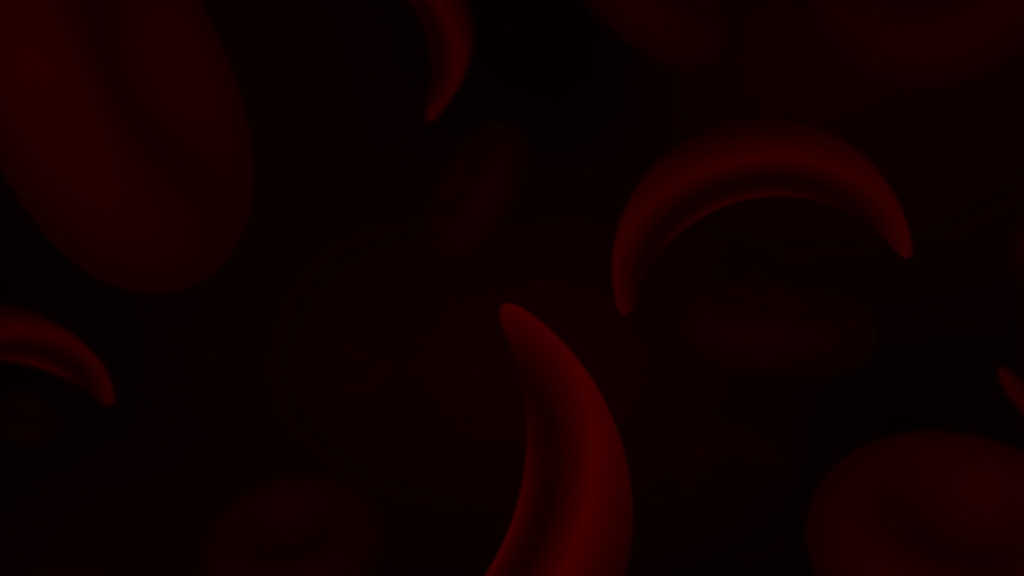About Sickle Cell Disease
Sickle Cell Disease (SCD) is a group of inherited red blood cell disorders. It affects the shape and function of red blood cells, causing them to become hard, sticky, and shaped like a sickle. These misshapen cells can block blood flow, leading to pain, infections, and other serious health issues.
Sickle Cell Trait is a milder condition. It occurs when a person inherits one sickle cell gene and one normal gene. People with the trait usually do not experience symptoms of SCD but carry resistance to malaria and can pass the gene to their children.
Diagnosis
SCD is typically diagnosed through a simple blood test. In many countries, including the U.S., newborns are screened at birth. It is also possible to detect SCD before birth through prenatal testing.
Because children with SCD face a higher risk of infection and other health complications, early diagnosis and ongoing medical care are critical.
Complications and Treatments
Most individuals with SCD begin showing symptoms around five months of age. Symptoms and complications can vary widely from person to person, ranging from mild discomfort to life-threatening crises.
There is no universal treatment for SCD. Care plans are personalized and may include:
- Pain management
- Regular checkups and vaccines
- Blood transfusions
- Medications such as hydroxyurea
- Supportive therapies like hydration and rest

FDA-Approved Medications for SCD
There are four medications approved by the U.S. Food and Drug Administration (FDA) to help manage SCD:
- Hydroxyurea (Droxia, Hydrea, Siklos): Reduces painful crises and the need for transfusions and hospital stays.
- L-glutamine oral powder (Endari): Helps reduce complications related to SCD.
- Crizanlizumab (Adakveo): A monthly IV treatment that reduces pain crises.
- Voxelotor (Oxbryta): Helps improve hemoglobin levels and reduce anemia.
Cure Option: Bone Marrow or Stem Cell Transplant
A bone marrow or stem cell transplant is the only known cure for SCD. This procedure replaces the damaged bone marrow with healthy cells from a donor, usually a sibling with a close genetic match. However, it comes with serious risks and is typically recommended only in severe cases, especially for children with minimal organ damage.
Types of Sickle Cell Disease
There are several types of SCD based on the combination of inherited hemoglobin genes:
- Sickle Cell Anemia (SS): The most severe form, caused by inheriting two sickle cell genes.
- Sickle Hemoglobin-C Disease (SC): Milder form with some similar symptoms; common among West African, Mediterranean, and Middle Eastern populations.
- Sickle Beta-Plus Thalassemia: A milder form with some normal hemoglobin present; symptoms vary.
- Sickle Beta-Zero Thalassemia: Severe like Sickle Cell Anemia, often requires transfusions.
- Sickle Hemoglobin-D Disease (SD): Moderate symptoms; seen in individuals of Asian and Latin American descent.
- Sickle Hemoglobin-O Disease (SO): Can mimic sickle cell anemia; more common in Arabian and North African populations.
Types of Sickle Cell Crises
People with SCD may experience different types of medical crises, including:
- Vaso-occlusive crisis (most common): Pain from blocked blood flow
- Sequestration crisis: Sudden pooling of blood in organs
- Infarctive crisis: Tissue damage from lack of oxygen
- Aplastic crisis: Sudden drop in red blood cell production
- Hemolytic crisis: Increased red cell destruction
- Bone pain crisis: Severe bone-related discomfort
What Is Sickle Cell Trait (SCT)?
Sickle Cell Trait is not a disease. It occurs when a person inherits one sickle cell gene and one normal gene. People with SCT are usually healthy and don’t show symptoms, but they can pass the gene to their children.
- 1 in 12 African Americans in the U.S. has SCT.
- SCT is also common among people with ancestry from sub-Saharan Africa, the Caribbean, South America, India, the Mediterranean, and parts of the Middle East.
Chances of Passing on the Trait or Disease
- If both parents have SCT, there is:
- 25% chance the child will have SCD
- 50% chance the child will have SCT
- 25% chance the child will have neither
- If one parent has SCT, there is:
- 50% chance the child will have SCT
- 50% chance the child will have neither
Rare Complications in SCT
While most with SCT live without symptoms, extreme conditions like:
- Dehydration
- High altitudes
- Low oxygen (e.g., intense physical training, mountain climbing)can trigger rare complications including pain crises or sudden death.
Getting Tested
A simple blood test can determine if you have Sickle Cell Disease or Trait. Testing is available at:
- Hospitals and clinics
- Community health organizations
- Local health departments
Understanding your sickle cell status is important, especially when planning a family.
A genetic counselor can help explore risks and options.
